I'm developing in go on my Mac using mongo and mgo driver.
Everything works great on my Mac. When my friend works on the same codebase from his windows machine, we get these weird non utf-8 bson.ObjectIds.
Here is a screenshot from mongolab.com (a hosted mongo server)

My code simply uses:
thing.Id = bson.NewObjectId()
thing.eventId = event.Id
Has anyone had this issue? Does anyone know how to deal with that
Edit: All bson functions used in this codebase are:
thing.Id = bson.NewObjectId()
thing.Id = bson.ObjectIdHex(id)
idString = thing.Id.Hex()
Thanks.